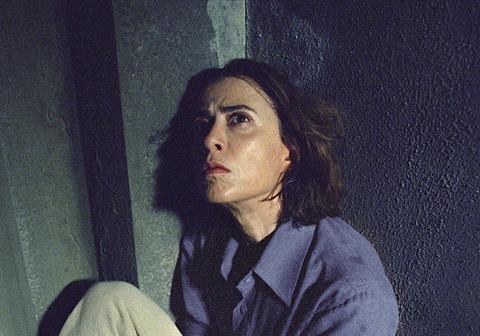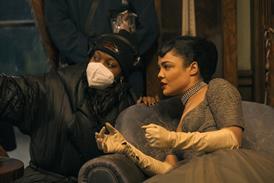Walter Salles directs Fernanda Torres in a standout performance as a real-life matriarch in military-ruled Brazil of the 1970s

Dir: Walter Salles. Brazil/France. 2024. 137mins
Rio de Janeiro, 1970. The Paiva family lives in a rented house near the beach which is always full of friends. They are comfortable rather than rich, but they enjoy a different kind of wealth: an intellectual freedom and curiosity that feels increasingly precious as the Brazilian military dictatorship flexes its muscle on the streets outside. One day, men with guns come to take the father, Rubens (Selton Mello), in for questioning. In his absence, his wife Eunice (Fernanda Torres) must find a way to protect her five children and reinvent herself. Walter Salles’ superb factually-based film – he was a real-life friend of the Paiva family as a teenager – is an an engrossing, affecting tribute to a formidable woman and her family.
An engrossing, affecting tribute to a formidable woman and her family
Salles’ first Brazil-set feature since Linha De Passe in 2008 and his first narrative feature in 12 years, I’m Still Here has links, in star Fernanda Torres, with his 1998 breakthrough picture Central Station. Torres is the daughter of Fernanda Montenegro, who was Oscar-nominated for her performance in Central Station and who has a brief but exceptionally powerful cameo here as the elderly Eunice. And like Central Station, it seems likely that, despite its length, I’m Still Here will be positioned as an awards contender by Sony Pictures Classics, which picked up the title for US distribution in Cannes earlier this year. Altitude will release the picture in the UK, following a busy festival itinerary that takes in TIFF, New York and San Sebastian.
The film is adapted from a book by Marcelo Rubens Paiva, the son of Rubens and Eunice, which addresses the subject of Brazil’s disappeared, victims taken by the Brazilian dictatorship, through the eyes of those left behind. And the book is not the only material that Salles had to work with: the Paiva family was – and still is – dedicated self-documenters. Real-life photographs, which are shared in the closing credits, provide a rich resource for the design departments, which vividly capture the film’s periods (mainly the early 70s, but with two later sections set in 1996 and 2014). And Super 8 footage – the oldest daughter Vera (played by Valentina Herszage as a teenager) is constantly brandishing a camera – is brilliantly used to evoke the joy and freedoms that are threatened by the regime.
Nowhere is this more effective than in an early sequence, in which Vera and her friends drive through the city, capturing its vibrancy and spark through the eager lens of the Super 8 camera and singing along to a track by Tropicalia musical legend Tom Zé. Then the car hits a military roadblock and the kids are abruptly pulled from the vehicle for an ID check that feels loaded with barely contained violence. Elsewhere, the picture is shot on 35 mm, with a camera that seems innately attuned to the energy and chaos of a large family (in this, and in the simmering backdrop of political unrest, there are obvious parallels with Alfonso Cuaron’s Roma).
Violence is everywhere, the background noise to normal life. But for the Paiva family, good times are the best form of resistance. About to break ground on a new construction project – a mid-century modernist home for the family with a view of the Christ The Redeemer statue – the Paivas are, in multiple ways, dedicated to building a better future in Brazil.
But Rubens’ disappearance brings into focus problems with life in ‘70s Brazil that go beyond the actions of a brutal military regime. Eunice finds herself confronted by an inflexible and deeply unhelpful patriarchy. Rubens and his male friends were all, she learns belatedly, covertly politically active, but none of them thought to share this information with their wives. A bank manager, a friend of the family, politely declines her request to withdraw money from the Paiva account without her husband’s signature. Like Eunice herself, the handling of the story is classy and restrained: Salles never over-labours the film’s emotional beats, relying instead on Torres’ magnificent, intricately layered performance to drive the picture.
Production company: VideoFilmes, RT Features, MACT Productions
International sales: Veterans Goodfellas asst@the-veterans.com
Producers: Maria Carlota Bruno, Rodrigo Teixeira, Martine de Clermont-Tonnerre
Screenplay: Murilo Hauser, Heitor Lorega
Cinematography: Adrian Teijido
Editing: Affonso Gonçalves
Production design: Carlos Conti
Music: Warren Ellis
Main cast: Fernanda Torres, Selton Mello, Fernanda Montenegro, Valentina Herszage, Luiza Kozovski, Maria Manoella, Marjorie Estiano, Bárbara Luz, Cora Mora, Gabriela Carneiro da Cunha, Olivia Torres , Guilherme Silveira, Antonio Saboia, Pri Helena





















